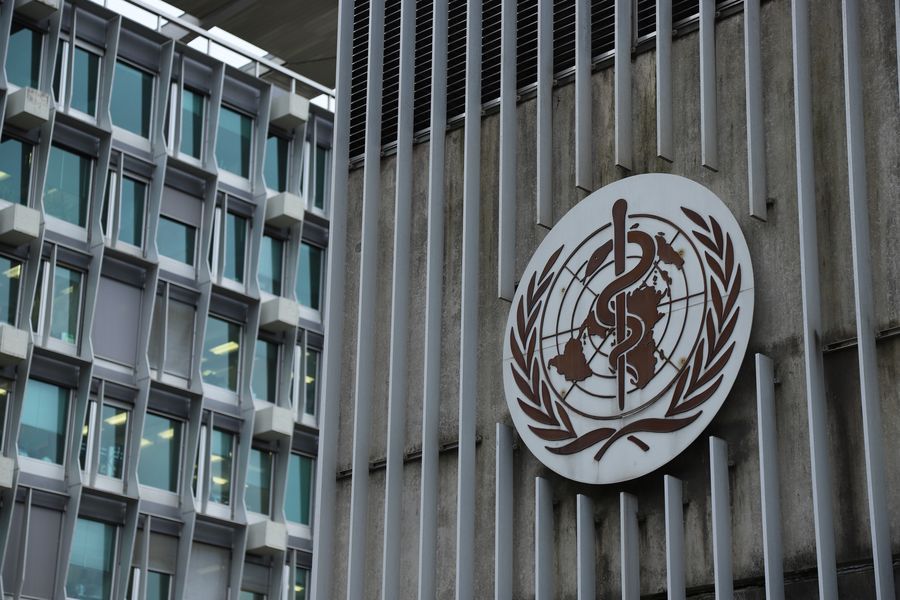
The emblem of World Health Organization. (Photo: Agencies)
Experts at the World Health Organization and at public health schools warned on Monday that the world is not yet adequately prepared for the novel coronavirus, or for future pandemics.
This week marks the one-year anniversary of the WHO learning about cases of "pneumonia with unknown cause" via a bulletin issued by the health authorities in Wuhan and by ProMed, the world's largest surveillance system that conducts global reporting of infectious disease outbreaks.
David Heymann, a professor at the London School of Hygiene & Tropical Medicine, warned that the novel coronavirus may remain endemic in the future.
He said that no matter what people do today, it will continue to spread despite vaccines, therapeutics, and diagnostics.
"We have to learn to live with this and use the tools we have in the best ways possible," he said at a WHO virtual news briefing.
Bruce Aylward, a senior advisor to WHO Director-General Tedros Adhanom Ghebreyesus, said "the virus is telling that we are not prepared" and he cited the second and third waves of infections that are spreading globally.
"While we are better prepared, the real question is, are we prepared for the next one?" he said. "We are not fully prepared for this one, let alone the next one."
Aylward pointed out that people do not know what the next pandemic will be.
"And it will be folly to say we are fully prepared," he said. " … If anything, at the end of 2020, we should be humbled by the fact that we will always be preparing for these viruses."
Mike Ryan, executive director of the WHO's Health Emergencies Programme, said the COVID-19 pandemic has been very severe and has spread quickly around the world.
"But this is not necessarily the big one," he said. "This is a wake-up call ... We need to get ready for something that will be even more severe in the future."
Maria Van Kerkhove, the WHO's technical lead on COVID-19, noted that countries that had traumatic experiences with similar pathogens, including SARS, MERS, and Ebola, have used their experience to build their public health infrastructure.
She said the countries, which may not have been high-income nations, have acted "aggressively, comprehensively, using all-of-government, all-of-society approach and really tackling this".
Tedros appeared emotional on Monday during the briefing.
He said there has been progress, in terms of people's awareness and the centrality of health, but he said it will take time to build up capacity and strengthen preparedness.
"We are now fighting with what we have," he said.
Tedros said the year 2020 has been very difficult and tragic, and for him it was not solely down to COVID-19 but also to war in his home country.
"My country, Ethiopia, is in trouble," he said. "And the devastating war that is happening in my home country, in my home region, Tigray, in the northern part of Ethiopia."
Tedros said many of his relatives, including a younger brother, are still in the region.
"And I don't know where they are," he said. "I haven't communicated with them because communication is not there."
Tedros said he has also seen hope in the difficult situation.
"We can also find ways to build a better world, and hope to improve the situation as we all said, build back even better," he said.
Tedros became a grandfather two months ago and said he also sees hope when looking at his granddaughter.
"If the world works together, there is a solution," he said. "And I hope the problems and difficulties of 2020 will be behind us and we will have a better 2021."


